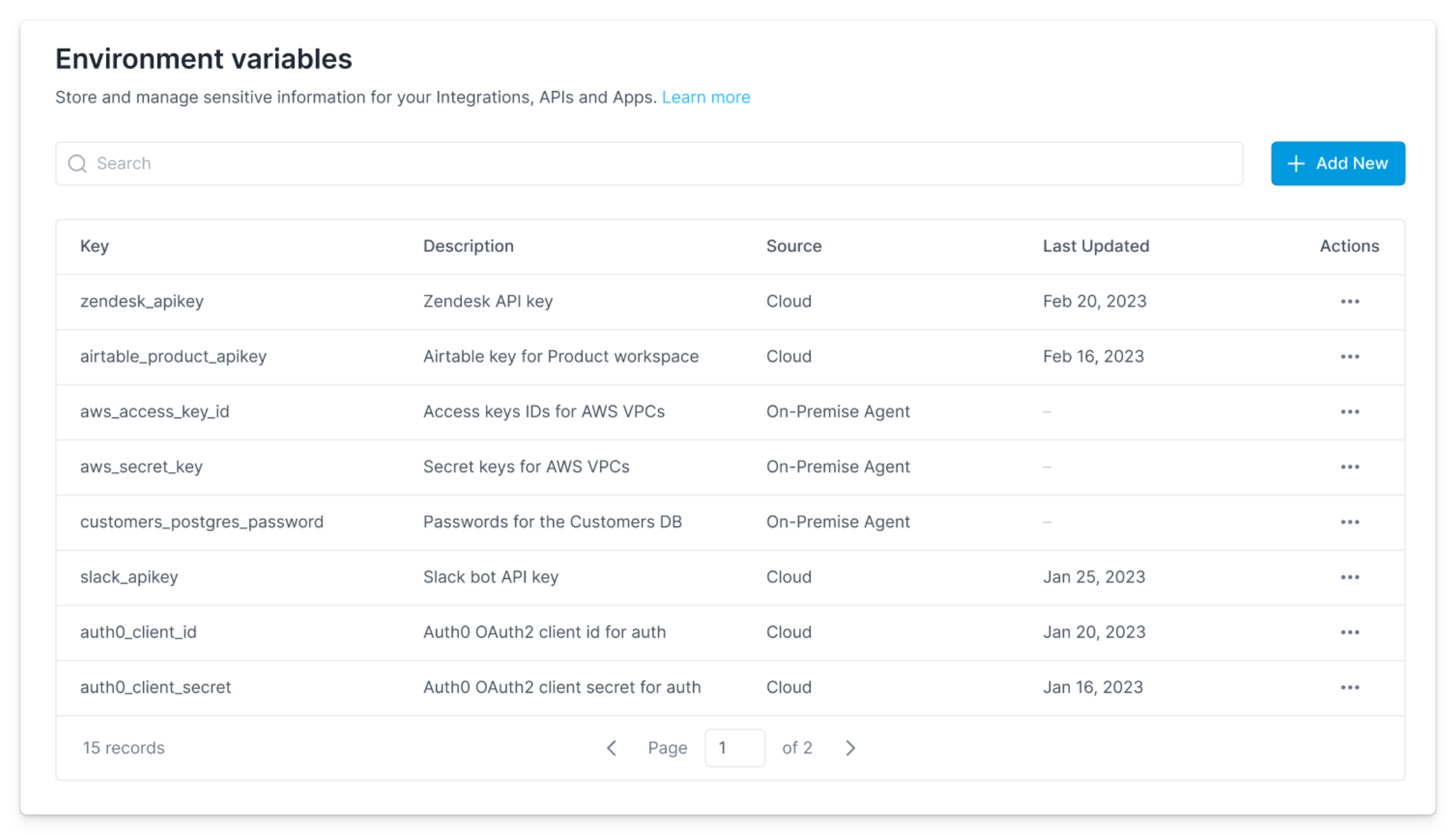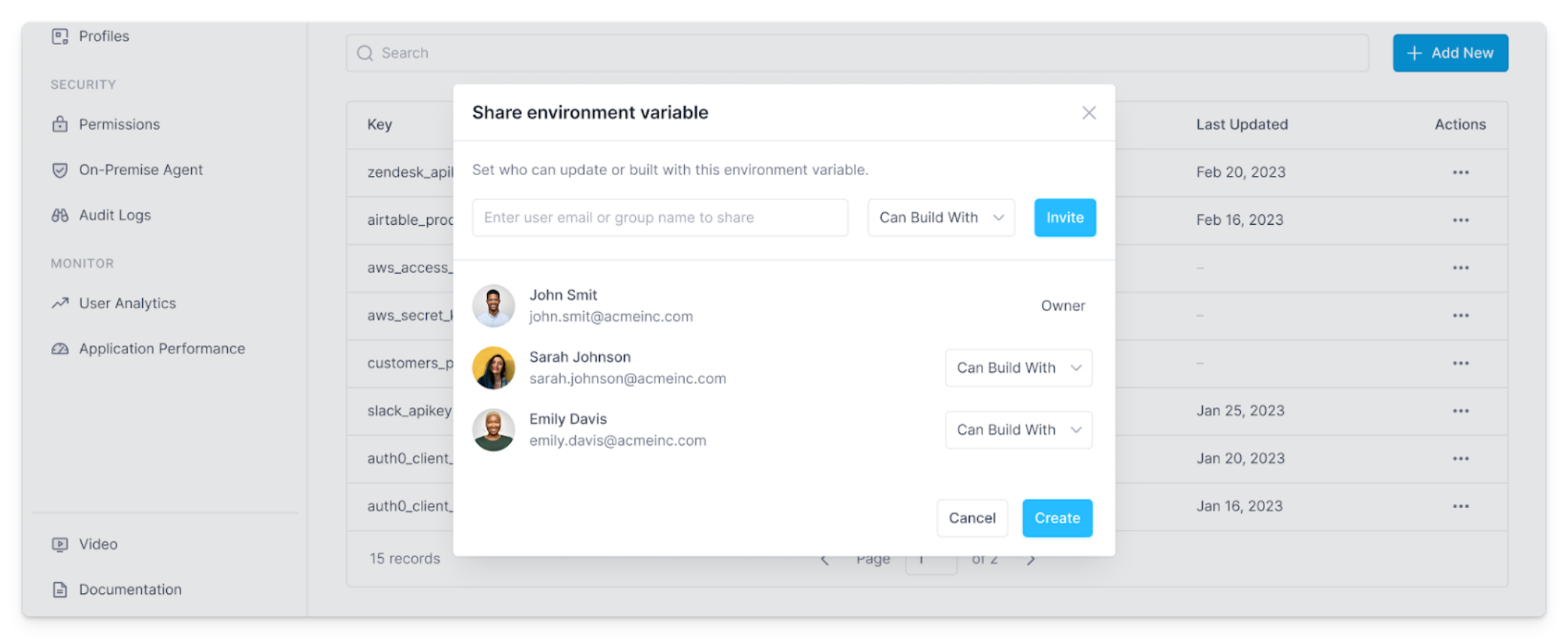Environment Variables
Store and manage sensitive information for your Integrations, APIs, and Apps.
Superblocks Environment Variables let you centrally manage variables and secrets, such as access tokens, passwords, and configuration values in Superblocks. Share variables securely so your team can use secrets wherever they need them while letting privileged users access the secret’s value. Reference variables anywhere in Superblocks, including Integrations, APIs, and Applications.
About Environment Variables
Environment Variables in Superblocks are encrypted values you create at an organizational level so your team can securely use them across your Superblocks Application, Workflows, Scheduled Jobs, and Integrations.

Superblocks offers two types of Environment Variables:
- Cloud variables are created directly in the Superblocks UI and securely encrypted and stored in Superblocks Cloud. Cloud variables used in Superblocks are resolved at run-time so you can easily rotate secrets or update shared values across all your Superblocks tools without the hassle of updating and redeploying each tool individually.
- On-Premise Agent variables are configured and stored locally on your On-Premise Agents. Use On-Premise Environment Variables to easily pass shared context to your Superblocks tools without secrets being stored outside your network. Simplify secret management further by mounting Environment Variables from secret managers like AWS Parameter Store, Google Secrets Manager, or Hashicorp Vault.
Value overrides per Profile
By default, environment variables have one value that is available to all of your Superblocks Profiles. Alternatively, you can choose to set a different value for each profile.
Setting different values per Profile opens up more possibilities for leveraging environment variables on Superblocks. For example:
- Modify which Slack channel a set of Workflows sends messages to when running reports for EU vs US customers
- Configure the LaunchDarkly environment ID used in Dev, Staging, and Production
- Centrally manage AWS access key, secret key, and IAM roles needed to connect to S3 and Dynamo for each of your production and staging instances
Managing variable permissions
Environment variables can be shared with all or a subset of your team, similar to Superblocks Integrations. Users and Groups can either have Build or Configure access to environment variables.
With Build access, users can reference the Environment Variables in APIs or Integrations. They won’t be able to view the value associated with the variable, though, protecting secrets from being copied and used outside of Superblocks in unauthorized ways.
Users with Configure access have full access to the Environment Variables, including the ability to update the value associated with the variable.

Using environment variables
Once you’ve added and shared your environment variables, you can start using them anywhere in the Superblocks platform as a property of the Global Object using {{ Global.Env }}.
Superblocks will resolve the value of the variable when your APIs run, or Applications renders, fetching the value either from your On-Premise Agent or our Global Edge Network.